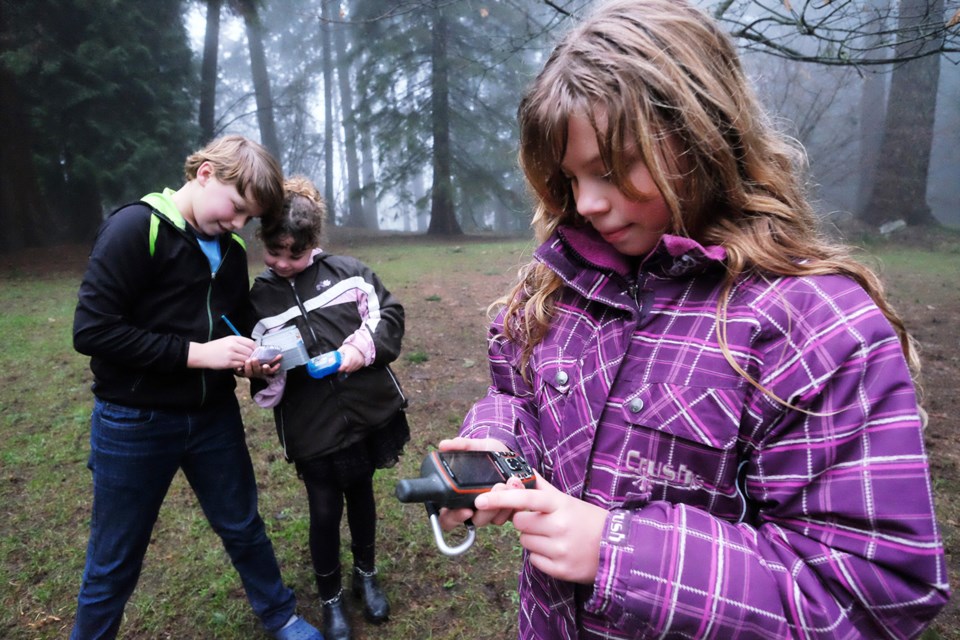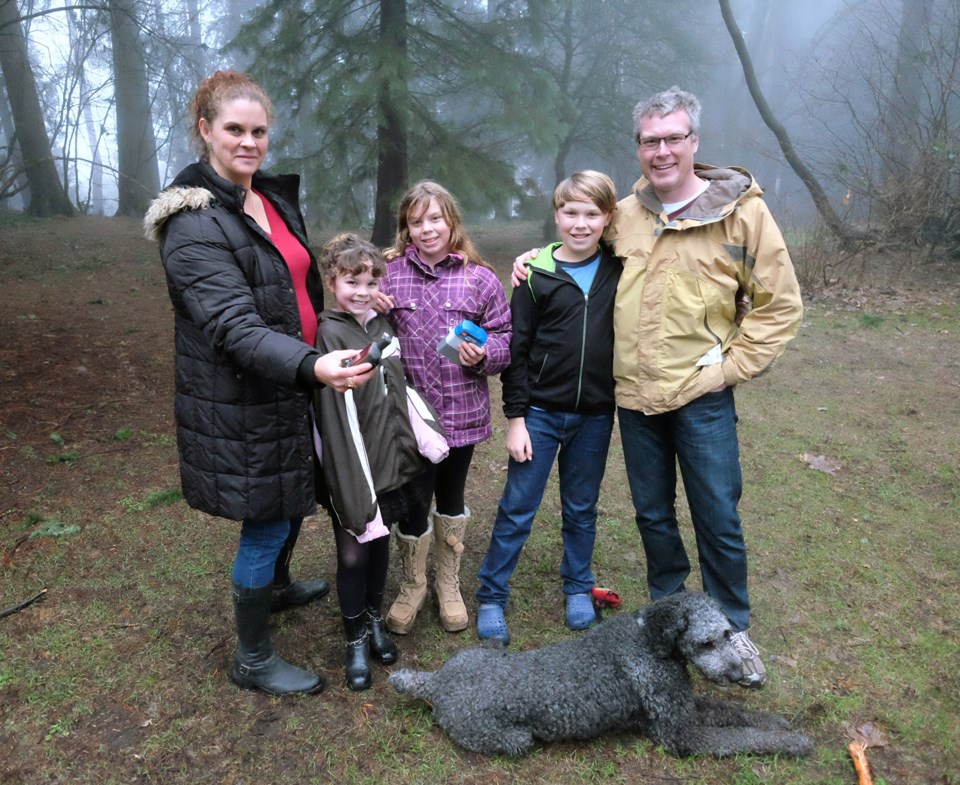They crawled along the ground on their stomachs to get through the narrow opening of a cave on one of their many hunts.
It was during a summer camping trip in Chilliwack that the LeBerg family found the secret caves. They only made the discovery because they were geocaching, an outdoor recreational activity where participants use navigational devices to hide and seek "caches," a collection of items stored in a hidden or inaccessible place.
They whole brood: Dad JP, mom Kris and Quentin, 11, Chloe, 9, and Abigail, 7, went for a hike to find some nearby caches during the camping trip. When they realized the caches were actually inside hidden caves, they went back and got flashlights and grabbed the rest of their camping group. Had it not been for caching, they would have never found the remote spot and if they had, Kris wouldn't have allowed her kids to venture into this unknown hole.
But because there was a cache, a description of the cave and hundreds of people had gone before them safely, they felt it was safe to enter.
"We actually crawled into the cave opening, which was so small that we had to 'army crawl' ... then look for a small cache container tucked away behind a rock," Kris recalls. "Turns out the cave opened up just beyond that into a cavern large enough that four to five adults could actually stand up and still not touch the cave ceiling."
It's this kind of unexpected adventure that the LeBerg family loves about geocaching. Without it on that particular camping trip, they would have sat around the campsite and maybe gone for a simple walk.
"How boring in comparison," says Kris, a self-confessed geocaching fiend.
Her love of geocaching started when she and JP had their kids. Before the little ones were born, JP tried to get Kris into the geocaching craze when it emerged in the 1990s.
"I thought it was the geekiest thing to do," Kris says, laughing. "So we did it for a bit, but he couldn't get me into it."
To date, the family has found 2,013 caches since they started in 2005, though they didn't get serious about it until 2009.

"Once we had kids, we would always be going out for hikes, for day trips, and (we used geocaching) to motivate them to keep going to the next one," she says. "The kids called it treasure hunting."
On a damp weekday the entire crew, including an enthusiastic four-year-old Labradoodle named Oliver, meet at Queen's Park, an area thoroughly peppered with caches - the secret finds which can be filled with almost anything.
A tall evergreen at the Sixth Avenue entrance to the park houses one of Kris's own caches, a plastic Lego box that is about the size of a piece of bread. Inside is a notebook, which people sign with their geocaching name and the date they found it. They then go home and log the find on the geocaching website. Cachers take and leave treasures, usually dollars-store trinkets, which her kids like, Kris says. Caches can be all sizes and in all sorts of places. Kris has planted 93 in New West and beyond. People (or animals, as the case may be) who scoop up the caches they take are called "Muggles," a Harry Potter reference to the "non-magic people," JP says.
The LeBerg family has found caches of all sizes, including one as large as a garbage bin, discovered in the middle of the forest. The smallest find, a magnet that was found underneath a park bench, was about the size of a pinky fingernail.
The LeBerg's use a GPS to track the caches, but there are also apps to use for the hunt. The tracking tools help get hunters to a certain point - the general vicinity - and then from there they read a description of the cache. There is typically also a hint to help narrow down the location.
The caches can be found in some creative and clever spots. Youngest daughter Abigail describes one of the family's funniest finds: a tube attached to a pair of underwear. The cache included a play on the phrase "under where?"
"There is fake rocks, fake logs, people have hollowed out stumps," Kris says, but adds that the general idea is that you are not supposed to disturb or damage the environment.
After years on the hunt, the LeBerg's have honed their skills, Kris says.
"We call it our geo-senses," Kris says.
But even with their sharpened senses, the family has still been stumped.
"Remember we were with our cousins, and we were looking for it for a very, very long time," seven year-old Abigail says, looking up at her mom, "and then you were about to give up, so you just put your hand on the tree and then you heard a velcro sound, so you peeled off a piece of bark and the geocache was in the tree. The bark had velcro so it would still stick onto the tree."
There are plenty of suprises and otherwise unseen spots that geocaching has taken the family, like the Chilliwack caves.
"JP and I are outdoor, active people to begin with so we just raised our kids that way," Kris says.
But without the adventure and hunt aspect of geocaching, there would have been more "complaining" about those long walks outside, Kris says.
To learn more about geocaching and how to sign up, Kris suggests visiting www.geocaching.com.



